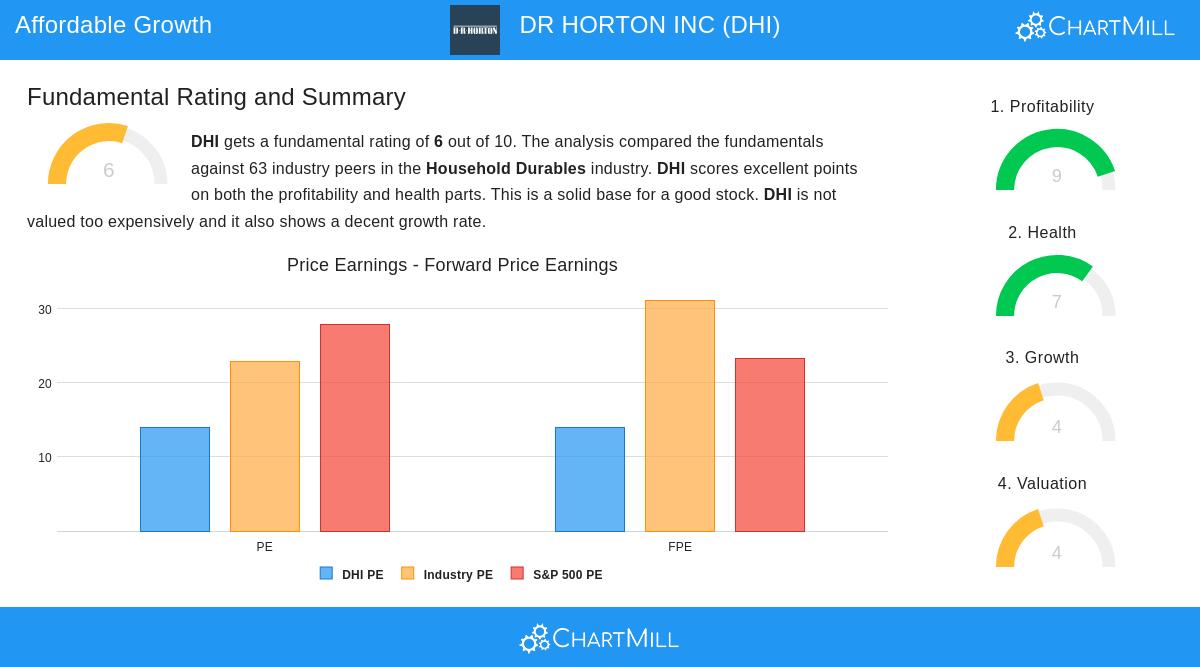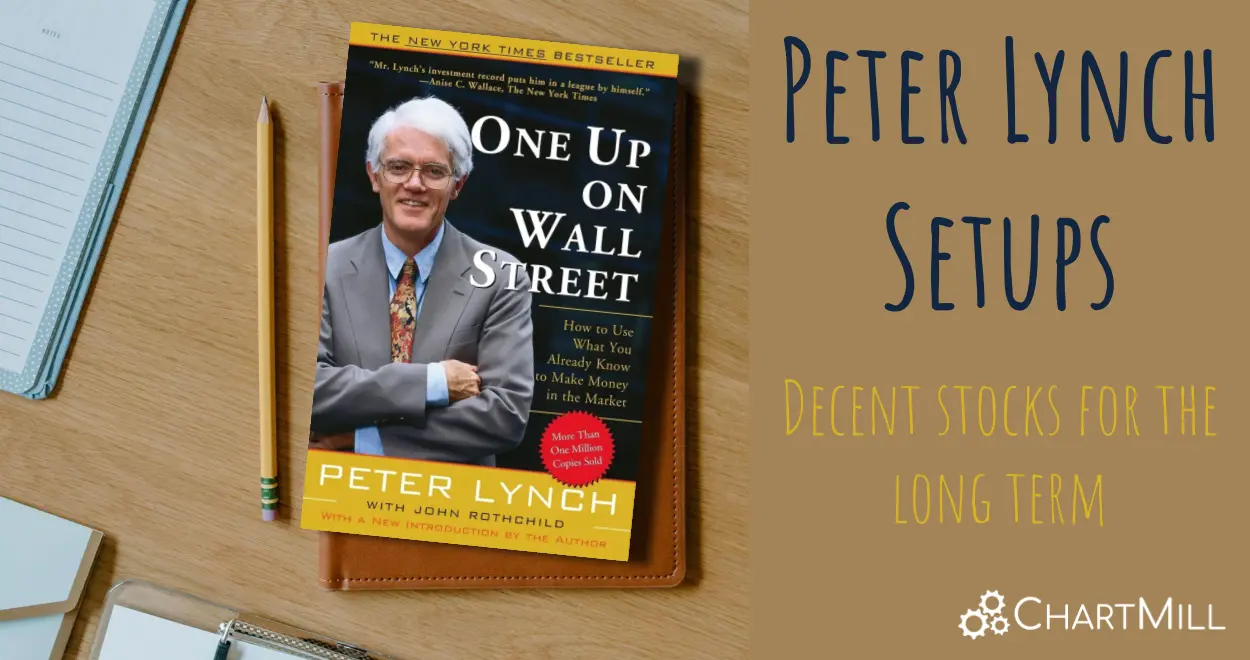D.R. Horton Inc. (NYSE:DHI) Stands Out as a Peter Lynch-Style GARP Investment
The investment philosophy created by Peter Lynch focuses on finding companies with good growth prospects that are trading at sensible prices, a method often called Growth at a Reasonable Price (GARP). This method does not use the extremes of pure growth or deep value investing, instead concentrating on firms that show lasting earnings growth, good financial condition, and profitability, all while being priced well compared to their growth possibility. The system uses a particular group of fundamental filters to search for these companies, with the goal of creating a varied, long-term portfolio.

Meeting the Lynch Criteria
D.R. Horton Inc. (NYSE:DHI) appears from a screen based on Peter Lynch’s strategy, showing a good fit with its main ideas. The screen’s filters are made to find companies with a confirmed history of controlled growth, financial steadiness, and good price, which are the foundations of Lynch’s method.
- Sustainable Earnings Growth: A main idea of the Lynch method is to find companies increasing at a speed that can be continued, avoiding firms that may be growing too fast. DHI’s earnings per share have increased at a notable average yearly rate of 27.63% over the last five years. While this is above the screen’s upper limit of 30%, it points to a strong and steady growth path that investors should study more for its ability to last.
- Reasonable Valuation (PEG Ratio): Lynch famously used the PEG ratio to find stocks that were priced sensibly relative to their growth. A PEG ratio under 1 is seen as good. DHI’s PEG ratio, based on its past five-year growth, is at a notable 0.51, implying the market may be pricing its past growth performance too low.
- Strong Profitability (ROE): Return on Equity is a direct measure of how well a company creates profits from shareholder equity. Lynch looked for companies with an ROE above 15%. DHI easily meets this with an ROE of 16.48%, showing capable management and a good competitive position.
- Financial Health (Debt/Equity and Current Ratio): A careful balance sheet is important for handling economic slowdowns. The strategy prefers companies with a Debt-to-Equity ratio below 0.6, and DHI’s ratio of 0.30 shows a small use of debt financing, matching Lynch’s own liking for even smaller levels. Also, its solid Current Ratio of 4.91 shows more than enough cash to pay for short-term bills.
Fundamental Health Overview
A detailed fundamental analysis of D.R. Horton supports the findings from the screen, giving the company a total rating of 6 out of 10. The analysis points out several areas of strength that are important for long-term investors. The company gets excellent scores for both profitability and financial health, putting it in the group of the best in the household durables industry. Its profit margins are especially good, and it does very well in important efficiency measures like Return on Invested Capital. While the company’s price is seen as fair and similar to its industry, its growth rating is more average, showing a recent reduction in earnings and revenue after a time of unusual increase. This change in growth speed is a significant point for investors to watch in the future.
A GARP Candidate in a Basic Industry
D.R. Horton works in the homebuilding field, an industry that matches well with Lynch’s suggestion to invest in what you understand. The need for housing is a basic and clear part of the economy. While not a “popular” tech stock, the company’s leading market place and performance in a necessary area make it a typical “ordinary” business that can create large returns. Its good financials provide a safety buffer, while its past growth and sensible price offer the chance for value increase, making it an interesting candidate for investors looking for growth at a reasonable price.
For investors wanting to find other companies that pass the Peter Lynch screen, you can view the complete and updated list of results here.
Disclaimer: This article is for informational purposes only and does not constitute financial advice, a recommendation, or an offer or solicitation to buy or sell any securities. The opinions expressed are based on current market conditions and are subject to change. All investments involve risk, including the possible loss of principal. You should conduct your own research and consult with a qualified financial advisor before making any investment decisions.


